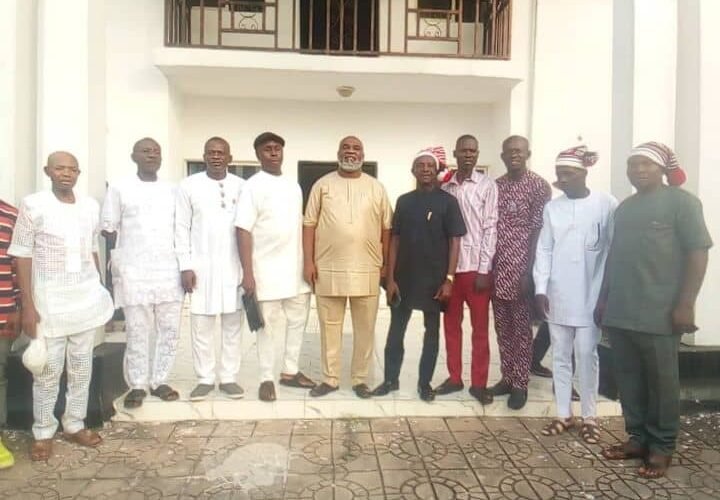Community Development in Action: Hope Rises in Ohafia LGA
The road from Akara to Abiriba junction has been a major concern for residents and commuters alike. However, palliative work is currently underway to address the challenges faced by road users. As shown in the video, the contractor, FEROTEX, has made significant progress on the project, with work already completed from Akara to Alayi.
The progress made so far is a testament to the commitment of the contractor and the government to improving the road network in the region. However, there is still much work to be done to complete the entire section to Abiriba. To address this, the contractor has been urged to increase the pace of work to ensure that the project is completed before Christmas.
The completion of the road project will have a significant impact on the local economy and the lives of residents. It will improve the movement of goods and services, reduce travel time, and enhance the overall quality of life. Furthermore, the project will also provide employment opportunities for local residents, both during the construction phase and after completion.
As the contractor works to complete the project, it is essential that the government and other stakeholders provide the necessary support to ensure its successful completion. This includes providing adequate funding, ensuring the availability of necessary materials, and addressing any challenges that may arise during the construction process. With the collective effort of all stakeholders, the road from Akara to Abiriba junction will soon be transformed into a safe and efficient transportation route. As regards roads and vehicular transportation, the Mayor make yet another move.
That was the inauguration of the Ohafia LGA Transport Scheme Management Board which marks a significant milestone in the Mayor’s efforts to improve communication and transportation within the Local Government Area. This initiative, a key campaign promise of Mayor Chief Eleanya O. Kalu, aims to boost the local economy and enhance social activities. The newly constituted management board, comprising experienced individuals, is tasked with driving this vision forward.
The management board’s composition is a testament to the mayor’s commitment to assembling a team with diverse expertise. Mr. Uche Udensi, as General Manager, will provide strategic leadership, while Mr. Chidi Anya Igu, as Assistant General Manager, will support the day-to-day operations. The board also includes Prince Kalu Ogbu Arunsi as Secretary, Comrade Obiaruko Agbanyim, Mr. Orji Otum, Mr. Igwo Egwu Igwo, Ezeogo Godwin Ugwu, and Mr. Ndukwe Ncheghe as members. This collective expertise will be instrumental in shaping the transport scheme’s strategy and direction.
Chief Kalu insists that effective governance and management are crucial to the success of the transport scheme. As highlighted in the principles of board effectiveness, the quality of the board members, their focus, and dedication are essential. In his remarks, The Mayor charged them hinting that Ohafia LGA Transport Scheme Management Board must prioritize transparency, accountability, and stakeholder engagement to build trust and ensure the scheme’s sustainability.
As the management board begins its work, he mandated that it is essential to operationalize the clear goals, objectives, and key performance indicators (KPIs). In his wisdom, this will enable the board to track progress, identify areas for improvement, and make informed decisions. The Mayor has put in place the right leadership, governance, and management in place, therefore, Ohafia LGA Transport Scheme is poised to transform the transportation landscape in the region and contribute to the overall development of Ohafia Local Government Area. Now, palliative roads are ongoing, as the efficiency of vehicular transportation is smoothen out. Could we tap into the benefits of hindsights by reviewing a traumatic event in Abiriba?
A medical outreach program in Abiriba, Ohafia LGA, Abia State, took a devastating turn when many attendees were hospitalized due to adverse reactions to the free medications distributed.
According to reports, over 100 individuals were rushed to Ebube Ena Hospital for treatment after experiencing severe reactions to the drugs. The Abia State Commissioner for Health, Ogbonnaya Uche, confirmed the incident, stating that the hospitalization was due to suspected adverse drug reactions.
The commissioner also warned residents to exercise caution regarding organizers of unapproved healthcare events, emphasizing that such events would henceforth attract prosecution to prevent future occurrences.
An investigation into the incident has been launched by the Abia State Ministry of Health.
These three scenarios point to one fact, and one fact only: The Leadership style of Chief Eleanya Ojuu Kalu.
Chief Eleanya Ojuu Kalu’s leadership style is characterized by his commitment to community development and his ability to bring people together to achieve a common goal. As the Mayor of Ohafia Local Government Area, he has demonstrated his dedication to improving the lives of his constituents through various initiatives, such as the Ohafia LGA Transport Scheme.
One of the key strengths of Chief Kalu’s leadership style is his ability to assemble a team with diverse expertise. The newly constituted management board of the Ohafia LGA Transport Scheme is a testament to this, with members such as Mr. Uche Udensi, Mr. Chidi Anya Igu, and Prince Kalu Ogbu Arunsi bringing their unique skills and experiences to the table.
Chief Kalu’s leadership style is also marked by his emphasis on transparency, accountability, and stakeholder engagement. He recognizes that effective governance and management are crucial to the success of any project, and he has made it a priority to establish clear goals, objectives, and key performance indicators (KPIs) for the Ohafia LGA Transport Scheme.
For community-level development, Chief Kalu’s leadership style offers several insights. First, it highlights the importance of community engagement and participation in development projects. By involving stakeholders in the planning and decision-making process, leaders can build trust and ensure that projects are tailored to meet the needs of the community. Second, it emphasizes the need for effective governance and management structures to support community development initiatives. This includes establishing clear goals, objectives, and KPIs, as well as ensuring transparency, accountability, and stakeholder engagement. Finally, it demonstrates the value of collaboration and partnership in achieving community development goals. By working together with diverse stakeholders, leaders can leverage resources, expertise, and networks to drive positive change in their communities.

Dr Chukwuemeka Ifegwu Eke writes from the University of Abuja Nigeria.







